News
+ more news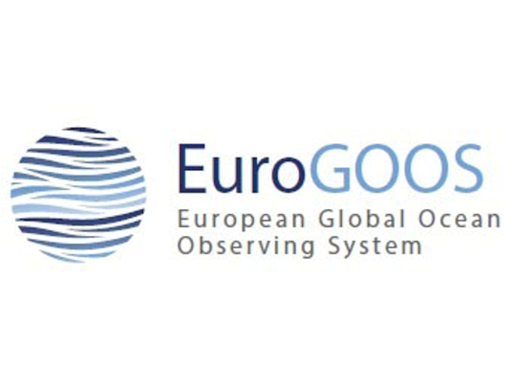
Call for abstracts for the 9th International EuroGOOS Conference, 14-15 October 2020, Brest, France
Monday, 11 May 2020
We would like to let you know that a call for abstracts is open for the 9th International EuroGOOS Conference "Advances in Operational Oceanography: Expanding Europe's ocean observing and forecasting capacity." The conference will take place in Brest, France, from 14 to 15 October 2020. The event will be hosted by SeaTech Week. The conference provides a forum for a broad range of implementers and users of operational oceanography services, including marine scientists and technologists, private companies, and policymakers. This year there is a number of themes and topics related to marine biogeochemistry which our community might find interesting.
Deadline for submitting abstracts is 31 May 2020. For more information on the Conference format, provisional programme and details of abstract submission process, please see the Conference website at https://eurogoos.ifremer.fr

OCB Working Group Webinar: Filling the gaps in observation-based estimates of air–sea carbon fluxes, Tuesday, May 5, 2020 @ 15:00–20:00 UTC
Monday, 04 May 2020
We would like to let you know that the first meeting of the US Ocean Carbon & Biogeochemistry (OCB) Working Group on "Filling the gaps in observation-based estimates of air–sea carbon fluxes" will take place this week, May 5-6, 2020 via Webex. The first day of the meeting (May 5) is open to everyone and will include presentations on the current state of understanding of the global ocean carbon sink. If you're interested, please register in advance HERE. After you submit your registration, Webex will send you an invitation with connection information, including a phone number if you prefer telephone audio. You can visit the working group website to view the meeting agenda. The presentations on May 5 will be recorded and posted on the OCB YouTube channel for viewing later. All webinar attendees will be muted, but you can type in questions and participate in discussion via the Q&A function as time allows at the end of each block of talks.
This working group was assembled in 2019 to assess critical uncertainties in existing observation-based air-sea carbon fluxes, determine how best to integrate observation-based open-ocean and coastal-ocean CO2 air–sea fluxes, and quantify uncertainties in the natural (pre-industrial) outgassing of CO2. These efforts will lead to better constraints on the contemporary ocean carbon sink and its variability. The results of this OCB Working Group will assist the global carbon community in understanding the state of the global carbon cycle so as to contribute to international efforts to address climate change.
New global ocean pCO2 climatology combining open ocean and coastal areas available from OCADS/NCEI
Wednesday, 22 April 2020
We would like to let you know that a new combined surface pCO2 climatology, produced by Peter Landschützer (Max Planck Institute for Meteorology, Hamburg, Germany) and co-authors, is now available and archived at NOAA's Ocean Carbon Data System (OCADS) Project, National Centers for Environmental Information (NCEI). The data product was created by merging 2 published and publicly available pCO2 datasets covering the open ocean (Landschützer et. al 2016) and the coastal ocean (Laruelle et. al 2017). Both fields were initially created using a 2-step neural network technique. Full documentation with metadata and dataset download links can be obtained from the product website: https://data.nodc.noaa.gov/cgi-bin/iso?id=gov.noaa.nodc:0209633. A manuscript describing the method and the dataset was submitted to Earth System Science Data journal.
This product is free to be used. Please cite this data set as:
Landschützer, Peter; Laruelle, Goulven; Roobaert, Alizee; Regnier, Pierre (2020). A combined global ocean pCO2 climatology combining open ocean and coastal areas (NCEI Accession 0209633). [indicate subset used]. NOAA National Centers for Environmental Information. Dataset. doi: https://doi.org/10.25921/qb25-f418. Accessed [2020-04-08].
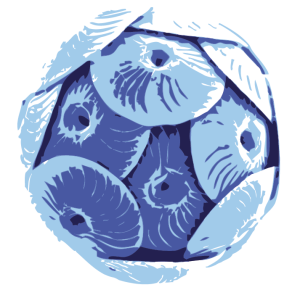
5th International Symposium on the Ocean in a High CO2 World - abstract submission deadline postponed
Tuesday, 31 March 2020
We would like to let you know that in view of the current situation with COVID-19, the Organizing Committee of the 5th International Symposium on the Ocean in a High CO2 World has extended the deadline for submissions of abstracts until Friday, 24 April 2020. Applicants for Travel support will be notified on the outcome of their application by 7 May. A decision will be made by mid-May on whether to continue with the proposed date (7-10 September 2020) or delay the Symposium.
The Symposium organizers are monitoring the situation closely and updates will be posted on the Symposium website: http://highco2-lima.org/index.htm

Deadlines extended for SCOR WG proposals and SCOR-POGO Visiting Fellowship Programme 2020
Friday, 27 March 2020
We wanted to let you know that the application deadline for SCOR Working Group proposals was extended to May 8th, and that the deadline for SCOR-POGO Visiting Fellowship Programme 2020 was extended to April 30th.
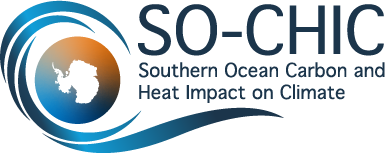
Webinar on project SO-CHIC: Southern Ocean Carbon and Heat Impact on Climate – Apr 7, @ 13:00 UTC
Friday, 20 March 2020
We would like to let you know about a webinar introducing a new EU Horizon 2020 project SO-CHIC (Southern Ocean Carbon and Heat Impact on Climate). The webinar will take place on April 7, at 13:00 UTC, and will be given by Jean-Baptiste Sallée (LOCEAN-IPSL, France). You can register for the webinar here:
https://zoom.us/webinar/register/WN_Zmuk7prXQciogyJlTMgMeg
To contribute to reducing uncertainties in climate change predictions, the overall objective of SO-CHIC is to understand and quantify variability of heat and carbon budgets in the Southern Ocean through an investigation of the key processes controlling exchanges between the atmosphere, ocean and sea ice using a combination of observational and modelling approaches. The SO-CHIC project has received funding from the European Union’s Horizon 2020 research and innovation programme under grant agreement N°821001.
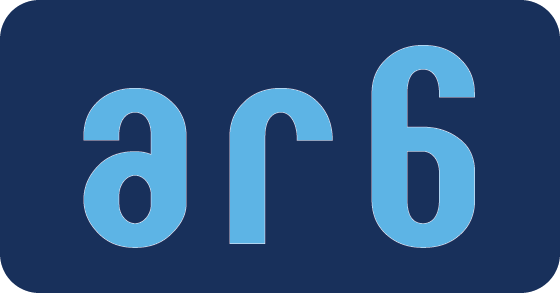
Second draft of IPCC Working Group I Sixth Assessment Report open for government and expert review
Wednesday, 18 March 2020
The Intergovernmental Panel on Climate Change (IPCC) has opened the second order draft of the Working Group I contribution to the Sixth Assessment Report (AR6) to government and expert review, marking the continued advancement of preparation in the flagship report. The review runs from 2 March to 26 April 2020 and interested experts can register until midnight CET on 19 April at https://apps.ipcc.ch/comments/ar6wg1/sod/register.php.

New report on shipboard time series data needs and priorities from the NSF EarthCube Workshop for Ocean Time Series Data (September 2019, Hawaii)
Thursday, 12 March 2020
We would like to let you know that US OCB have published a report from a recent NSF EarthCube-sponsored workshop on shipboard time series data. The workshop resulted in a number of actionable outcomes which would among other things centralise international coordination of shipboard time series efforts and enhance the global discoverability and interoperability of time-series data, their synthesis and broader applications. The report and citation are available from below:
Benway, H., J. Buck, L. Fujieki, D. Kinkade, L. Lorenzoni, M. Schildhauer, A. Shepherd, A. White. February 2020. NSF EarthCube Workshop for Shipboard Ocean Time Series Data Meeting Report. 59pp. DOI 10.1575/1912/25480
https://darchive.mblwhoilibrary.org/handle/1912/25480
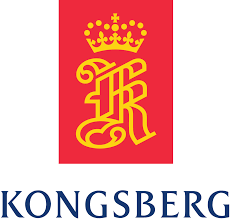
KM Contros GmbH to divest sensor business to -4H-JENA Engineering GmbH
Monday, 09 March 2020
We would like to let you know that on March 1, 2020, KM Contros GmbH (Contros) has sold the sensor business to -4H-JENA engineering GmbH (-4H-JENA). The business has six highly qualified employees who will be a welcome addition to the -4H-JENA team. The agreement also includes a transfer of products (sensors), trademark and patents. The business will remain in Kiel. The following sensors will now become part of -4H-JENA’s portfolio: Contros HydroC pCO2 and pCO2-FT, Contros HydroC CH4 and CH4-FT, Contros HydroFIA pH, Contros HydroFIA TA .

Webinar: How to start and maintain carbonate system in situ observations to evaluate ocean acidification - 6 Mar, 12:00 GMT
Wednesday, 04 March 2020
We would like to let you know about a NANO Global Project webinar on "How to start and maintain carbonate system in situ observations to evaluate ocean acidification", by Dr. Carla Berghoff from Instituto Nacional de Investigación y Desarrollo Pesquero (INIDEP), Argentina. The webinar will take place on 6th March at 12:00 noon (GMT). Dr. Carla Berghoff is a research scientist in the Marine Plankton Dynamics and Climate Change (DiPlaMCC) program at INIDEP. Dr. Berghoff is a biologist with a strong background in carbonate chemistry. During the last six years she participated in several ocean acidification trainings and numerous oceanographic cruises measuring total alkalinity and pH, which gave her vast experience on the analytical determination of the carbonate system. Her research focuses on link the temporal and spatial variability of the carbonate system, the role of the phytoplankton and its impact in regulating air-sea gas exchange in different areas of the Argentine Sea, especially at the EPEA ecological time-series station, maintained by DiPlaMCC-INIDEP. Carla is also a member of the Executive Council of Latin-American Ocean Acidification (LAOCA) Network and of the NANO Global Research Project (https://nf-pogo-alumni.org/projects/global/).
Follow this link to register for the event: https://bit.ly/37WobX6
The IOCCP promotes the development of a global network of ocean carbon observations for research through technical coordination and communication services, international agreements on standards and methods, and advocacy and links to the global observing systems. The IOCCP is co-sponsored by the Scientific Committee on Oceanic Research and the Intergovernmental Oceanographic Commission of UNESCO. Read more…
Calendar
|
|
IOCCP meetings, IOCCP-related meetings as well as events related to a wider scope in marine biogeochemistry. |



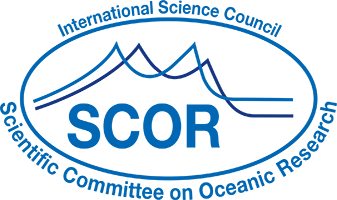

 Please wait...
Please wait...